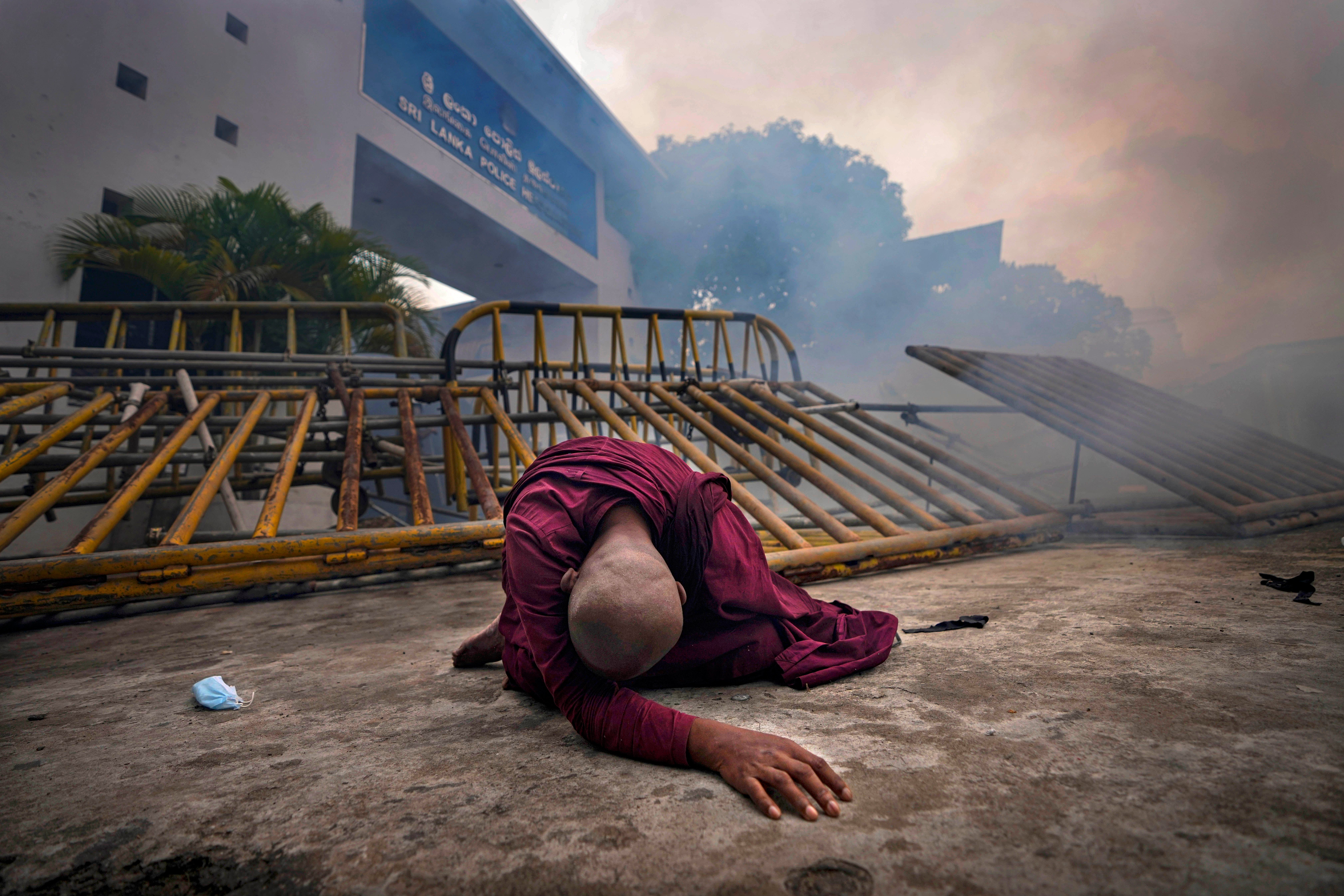Sri Lanka shuts schools and orders work from home amid fuel shortage during worst economic crisis in decades
Employees have been asked to work from home until further notice

Cash-strapped Sri Lanka has shut down schools and urged employees to work from home in an effort to save fuel as the nation continues to battle its worst economic crisis since its independence in 1948.
Schools in the capital Colombo and surrounding areas have been shut for a week. The move would further impact children’s education, already disrupted for years due to Covid-19, according to non-profit Save the Children.
Employees have been asked to work from home until further notice, just days after the government reduced working days by declaring Friday a holiday and urged employees “to engage in home gardening or cultivating short-term crops” to secure their supplies.
Troops on Monday handed tokens to people queueing for petrol amid a severe shortage.
“I have been in line for four days, I haven’t slept or eaten properly during this time,” autorickshaw driver WD Shelton, 67, told Reuters. He was one of the hundreds of people standing in serpentine queues with a token meant to hold his place when fuel becomes available.
The crisis-hit nation of 22 million people is struggling to secure fresh fuel supplies, power and energy minister Kanchana Wijesekera said on Sunday. He added that stockpiles stand at about 9,000 tonnes of diesel and 6,000 tonnes of petrol with no fresh shipments due.
According to reports, public transport, power generation and medical services would be given priority in fuel distribution, while some would be rationed to ports and airports.

Ranil Wickremesinghe, who took over as prime minister in May, announced last week that the nation’s economy has “completely collapsed” due to depleting foreign reserves and mounting debt.
Mr Wickremesinghe said Sri Lanka is “facing a far more serious situation” than the gas, electricity and food shortages it has experienced in recent months amid protests against president Gotabaya Rajapaksa and his family.
“We are now seeing signs of a possible fall to rock bottom,” he warned.
Since the onset of the crisis, Sri Lanka has largely received fuel via a $500m Indian credit line, which ran out in mid-June. A petrol shipment due last Thursday failed to arrive and no fresh shipments are yet scheduled.
The island nation implemented a 12 per cent to 22 per cent fuel price increase on Sunday.
Meanwhile, Sri Lanka said it is sending two government ministers to Russia on Monday to negotiate for fuel. Mr Wijesekera said the two ministers would continue talks that Sri Lanka has been having with Russian authorities to directly purchase fuel, among other related issues.
“There is an advantage for us if we could buy oil directly from the Russian government or Russian firms. There are talks going on,” he told reporters.
His remarks came as senior US officials were in the island country to seek ways to help the nation with the unprecedented economic crisis. The Joe Biden administration has over the past two weeks announced millions of dollars in assistance, while the World Bank has pledged $300m to $600m to buy medicine and essential items.
India had extended a $4bn credit line for the struggling nation.
Additional reporting by agencies






Join our commenting forum
Join thought-provoking conversations, follow other Independent readers and see their replies
Comments